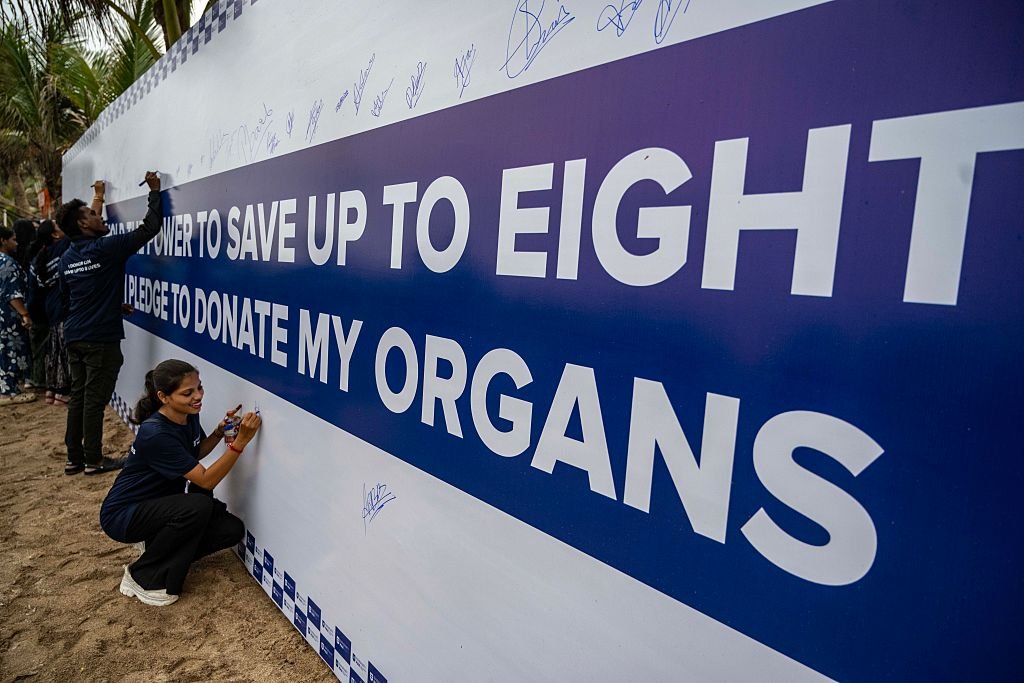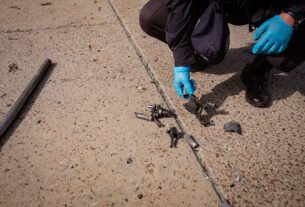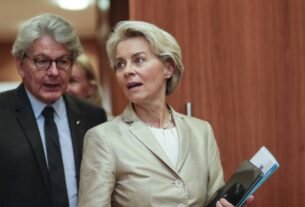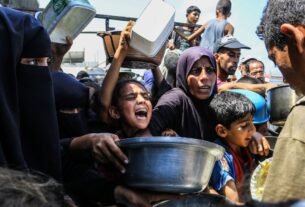Europe’s transplant policy is back on the agenda after nearly a decade of neglect, but recognition alone will not be enough. Experts warn that any renewed EU Action Plan must address shifting donor demographics, fairer organ allocation, and codifying new technologies.
Transplant patients, many of whom gathered this summer at the World Transplant Games in Dresden, are also calling attention to the equally urgent need for rehabilitation, education and long-term follow-up.
“The most urgent policy and systems changes will need to focus on the changing demographics in our donor populations, how best to allocate organs fairly and efficiently and how to better understand and impact organ utilisation through more thorough analyses.
There are also important technology advances in organ donation that need to be codified to ensure public trust,” Dr. Nicole Turgeon, Chief of the Division of Transplant Surgery, Professor, Department of Surgery and Perioperative Care at the University of Texas at Austin, told Euractiv.
Waiting list danger
In 2023 alone, 56,032 new patients were added to European waiting lists, six every hour. During the same year, 7,054 people died while waiting for a life-saving organ.
Momentum has only recently returned.
After the expiry of the 2009–2015 EU Action Plan, transplantation largely slipped down the agenda. But under the Hungarian EU Presidency, the Council of the EU adopted conclusions in December 2024 calling for a renewed plan.
On 7 May this year, MEP Elena Nevado del Campo (EPP) pressed the Commission on when it would update the plan, citing “the growing demand for transplantation due to an ageing population and the rising prevalence of non-communicable diseases.”
Commissioner Olivér Várhelyi replied on 30 July that priorities identified with Member States include training for professionals, from donation after brain death (DBD) and circulatory death (DCD) to living donation and international exchange.
He announced €2 million under the EU4Health 2025 work programme to support these actions, while also pointing to prevention and cooperation with the Council of Europe.
Patient voice: life beyond survival
At the World Transplant Games in Dresden, patients themselves gave voice to what policy debates often miss: transplantation is not only about keeping people alive, but ensuring they can return to full and active lives.
Tom, 32, from Germany, a stem cell recipient and football player at the Games, described how recovery after his transplant was as much mental as physical.
“Physically, I was very thin, very weak, had no muscles anymore, could hardly walk, couldn’t climb stairs,” he said, “As a result, I was lying around a lot, was occupied with my thoughts and myself, and it took a very long time to get out of this hole, both mentally and physically.”
Rehabilitation at a centre in the Black Forest, daily physiotherapy, and strong family support eventually set him back on track. Inspired by an Instagram post during his illness, he set himself the goal of competing at the Games, and this summer marched proudly in Dresden.
Thomas, 23, from France, who competed in cycling and table tennis, received a liver transplant at nine months old. Frequent school absences forced him to repeat a year, and restrictions on football were his “biggest disappointment.”
He eventually embraced alternative sports, becoming a world champion in his category. “For me, participating in these World Games in Germany allows us, the transplant recipients, to show that we can participate, do sports, and that we are capable,” explained Thomas.
Better support needed
His story underlines the need for better education support, adapted sports opportunities, and structured transition into adult care.
Iisak, 22, from Finland, who won silver medals in the triathlon and cycling time trial, faced some of the steepest challenges. “After the transplant, I was 50 kilos, severely underweight. Threw up every day and felt like shit,” he recalled.
He endured months of hospitalisation, more than ten episodes of pneumonia, and repeated travel between Tampere and Helsinki for treatment. “I had to stop studying. I couldn’t do my sports, couldn’t see my friends, couldn’t eat what I wanted.”
With determination, he rebuilt his strength, eventually fulfilling his dream of competing in Dresden. “So right now I’m pretty much back to normal. Except that I have a worse immune system. But sports and activity are allowing me to have a normal life again.”
Their experiences highlight the reforms Europe must embrace: structured rehabilitation, continuity of education, coordinated care across hospitals, and long-term follow-up beyond surgery. For many, transplantation is not the end of treatment but the beginning of a long journey.
Recovery to collective advocacy
The World Transplant Games transformed these personal journeys into a collective message. Patients from across the world came together not just to compete, but to show policymakers and the public what transplantation makes possible.
“The World Transplant Games showcases the return of our patients to health and wellness. It is also a reminder of the incredible gift and impact of living and deceased donation,” said Dr. Turgeon.
“Having a large international event where patients gather and compete is a compelling platform to elevate awareness and gather a critical mass of people to fuel advocacy and system reform efforts.”
A moment for Europe to act
Despite medical progress, transplantation still struggles for sustained political visibility. As Dr. Turgeon observed, it is often treated as a young speciality that affects “a small number of patients” compared to cancer or other diseases.
But with over 56,000 people on waiting lists, thousands dying each year, and patients demanding support for the long journey beyond surgery, Europe cannot afford delay. A renewed Action Plan will only succeed if it adapts to demographic realities, codifies new technologies, and addresses the lived needs of transplant patients across the continent.
(BM)




